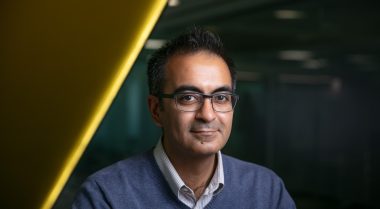Health Data Research UK’s Better Care programme announces recommendations for developing learning health systems in the UK
30 September 2022
Researchers are calling on policy makers to support the use of data-driven learning health systems to deliver a step change in the NHS's ability to improve patient care.

The call comes as a new report, authored by the Better Care programme from Health Data Research UK (HDR UK) and the Health Foundation, warns that tackling the huge pressures currently faced by health and care services as a result of the COVID-19 pandemic and a period of significant underfunding will require action on multiple fronts, and with learning health systems a key part of the mix.
Learning health systems are approaches that enable iterative, data-driven improvements to health and care systems which draw on the increasing availability of both clinical and patient-generated data. They aim to give health and care services the tools to identify and solve problems from within, turning them into “engines of innovation and improvement”.
The report suggests the learning health system approach offers a more powerful and sustainable route to improving NHS efficiency than relying on short-term, high cost, external consultancy support or nation-wide improvement programmes which are not tailored to meet local and regional challenges and needs.
Given the challenges faced by health and care services, the authors warn learning health systems are essential to the NHS’s sustainability and shouldn’t be seen as a “nice to have”.
Alice Turnbull, National Programme Director, HDR UK, said:
“The UK health and care system is facing some of its most significant resource challenges in its history.
“The long-term impact of the COVID pandemic combined with the current economic crisis makes it even more urgent to embed approaches which deliver sustainable and effective improvements in care and position our NHS to meet future health needs.
“In many ways, healthcare has always been learning from practice. But recent advances in data and technology, coupled with the move towards increased collaboration and integration between services, presents new opportunities to improve care in a more systematic way.
“HDR UK is working to harness this opportunity by enabling a more integrated health data ecosystem that prioritises benefit to patients and the public. This system is already enabling data-driven insights and technology to rapidly inform decision making across the health and care system but there is still a long way to go to ensure everyone, everywhere benefits from this approach.
“We hope that the recommendations presented in this report support the implementation of learning health systems across the UK and provide a route to help the national health service to negotiate the current challenges faced.”
Despite their potential, the report reveals most providers and systems have not yet been able to capitalise on learning health systems, creating a large gap between their “promise and practice”.
Based on interviews and a survey of over 100 stakeholders, the report provides evidence that a lack of data analytics expertise and the challenges of linking data across different sources are key barriers to implementing learning health systems.
In response, the authors highlight actions needed to increase data and analytical expertise through better training opportunities and career pathways, and providing long-term funding to support the development of mature digital capabilities.
It also presents 16 examples of how learning health systems have improved patient care, from Bluetooth-enabled nebulisers which have helped people with cystic fibrosis track their medication intake and shape their treatment plans, to data on the impact of taking magnesium sulphate as a pregnancy supplement which is believed to have prevented 48 cases of cerebral palsy between 2018 – 2021.
Tim Horton, Assistant Director (Insight & Analysis) at the Health Foundation said:
“The health and care system is under unprecedented pressure. A step change in providers’ capability to learn and improve is needed in order to find a sustainable route through COVID-19 recovery and to meet future health needs.
“Learning health systems can play a vital role here – capitalising on the increasing availability and potential of data and technology, to understand how to improve patient care, and translate this into practice.
“Policymakers, and those leading health and care services, can help create the conditions for learning health systems to flourish.
“Progress will be needed on a range of related issues, including data, digital maturity, improvement capability and culture, and in developing a clear vision for learning health systems and how they can improve health and care.
“Our report highlights eight areas where targeted action could support the development of learning health systems and help many more patients benefit from improved care.”



